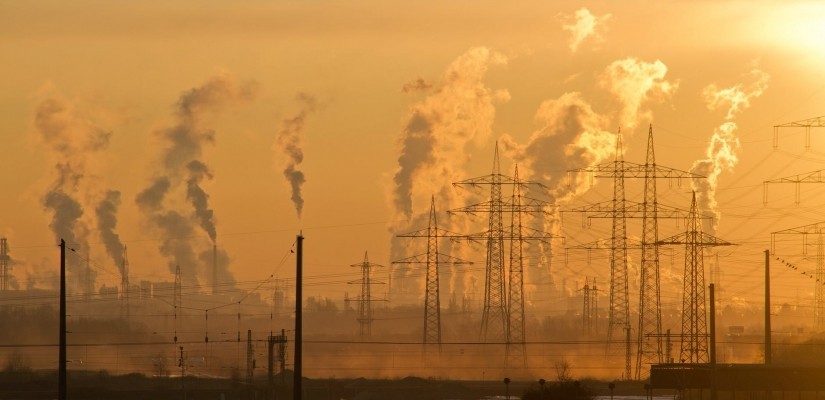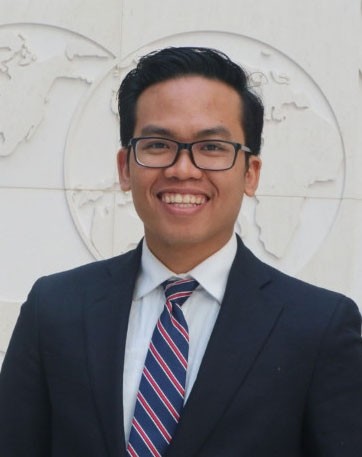The air pollution crisis not only threatens millions of people’s lives in Jakarta, but it also represents a real concern for future economic development. Indonesia's capital became a trending topic on social media after an extreme haze covered the city of Jakarta in June 2019. Thousands of Indonesians across the city protested by using #SetorFotoPolusi (“Upload Pollution Photos") to generate public awareness of the high levels of pollution in Jakarta.
Jakartans have suffered catastrophic air pollution for years and the situation has become increasingly critical. In 2018, AirVisual reported that Jakarta’s Air Quality Index (AQI) was one of the worst in the world, with an average reading of 140-165 ppm. This report indicates that Jakarta’s air quality is “unhealthy.” Alongside Beijing, Dubai, and New Delhi, Jakarta has become one of the world’s most polluted cities.
Transport and industry emissions are the leading cause of Jakarta's poor air quality. These emissions are a result of the high number of vehicles on the road, fossil fuel-intensive industries, agriculture, household activities, extensive construction, road dust, and waste incineration.
On July 4, 2019, the Jakarta Advocacy Team, alongside environmental activists, brought a civil lawsuit against the president of Indonesia; the Minister of Environment and Forestry; the health minister; and the governors of Jakarta, West Java, and Banten over Jakarta’s chronic air pollution. This class action demands that officials address the air pollution crisis by undertaking immediate measures.
Though it has largely gone unaddressed, air pollution poses real health risks to the Indonesian population. BreatheLife, the World Health Organization’s global campaign for clean air, reports that toxic air pollution causes over 8 million premature deaths every year. Specifically, the measure of particulate material known as PM2.5 is one of the most dangerous air pollutants. It is estimated that at least 7,390 Jakartans die every year due to high levels of PM2.5. In addition, over 10 million people living in Jakarta are threatened by respiratory problems caused by toxic air pollution. These problems include heart disease, stroke, chronic obstructive pulmonary disease, lung cancer, and acute respiratory infections in children.

A study by the World Bank reports that air pollution has a significant influence on economic development. It states that in 2013, air pollution cost the world economy about $225 billion in lost labor income. If air pollution remains unchecked, it will hinder Jakarta’s ability to conduct global business and give rise to significant environmental and economic costs. For instance, foreign investors will consider the financial risks of investing in a country with a low standard of living and poor air quality. Moreover, the costs of health care and the potential environmental damage will hamper productivity.
The Indonesian government must demonstrate a strong commitment to combat air pollution. It is important to exercise a solution-oriented approach and undertake greater regulatory reforms for existing air control laws. First, the government should revise the 1999 Regulation on Air Pollution Control by partnering with relevant ministries. The current national standard is too outdated and lags behind other countries. Second, the government ought to collaborate with stakeholders at various levels and form a special task force to promptly assess the current situation and identify potential risks.
The government should also provide real-time air pollution data by installing an adequate number of air quality detectors around Jakarta. These precautionary mechanisms would promote public awareness and encourage an appropriate response. For example, the information will tell people to wear protective masks or to limit outdoor activities. The government of Jakarta currently only has eight devices that monitor air pollution, which is insufficient. As a result, Jakartans are not well-informed and less conscious of the status of pollution.
Finally, the government needs to conduct regular scientific research on emissions in order to develop effective, evidence-based policies and programs. By doing so, the government can accurately measure and identify the quantity and sources of pollution. New policies would reduce emissions that result from specific air pollutants, such as those from transportation, coal-fired power plants, industrial activities, and households. The government should adopt comprehensive emission controls to prevent environmental degradation, promote sustainable industries, and implement waste management controls. If these appropriate measures are taken, economic development can continue on the right track.
